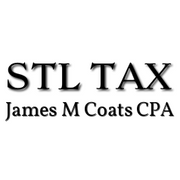
From most people, tax audits are rare. But compared to individual taxpayers, businesses face a higher risk of getting flagged by the IRS. Although reviews are usually routine assessments, the process is still time-consuming and costly for business owners. If you’re worried about your company’s finances, below are a few common reasons that the IRS conducts audits—and how you can avoid them when filing your next business tax return.
What Increases the Risk of a Business Tax Audit?
1. Questionable Deductions
Making excessive deductions can look like you’re trying to cheat the system. This is especially true if deductions consistently put you at a net loss or are no longer acceptable to the IRS—such as those used for entertainment expenses. To make sure your deductions are valid, always include receipts and documentation with your business tax return.
2. Misreported Income
You should include all income received by your company in your business tax return. If the IRS suspects you’re not reporting it all, you will get audited, and likely face penalties. To prevent this, adopt detailed accounting procedures, and avoid commingling funds—such as using income for personal use.
3. Primary Cash Use
 If your business deals mostly in cash, it is challenging to keep records of how money moves. So when your tax return involves a significant portion of cash income, they may audit you to ensure that you’re reporting the right numbers.
If your business deals mostly in cash, it is challenging to keep records of how money moves. So when your tax return involves a significant portion of cash income, they may audit you to ensure that you’re reporting the right numbers.
While you can’t always avoid cash transactions, making big purchases with a credit or debit card will allow for more straightforward documentation. Additionally, any cash payments you receive more than $10,000 should be thoroughly documented and reported with an IRS Form 8300.
4. Not Incorporating
Although incorporating or becoming a limited liability company (LLC) requires extra effort, it can reduce your chances of being audited. Since being incorporated or an LLC involves financial organization, the IRS will be more faithful in the numbers you report on your business tax return.
5. Filing Late
Filing your return late can leave you with more than a penalty fee—it can also raise red flags about the accuracy of your reporting. For this reason, you should work with a certified public accountant to have your taxes ready to file whenever you need it.
Running a business and facing an audit is difficult, but with James M. Coats, CPA of STL Tax, you can handle the process with confidence. Serving the St. Louis, MO, metro area, he is qualified to provide IRS representation to protect your rights and minimize losses during an audit. Other available services—such as business tax return preparation, bookkeeping, and business consulting—can help your company avoid accounting mistakes that could trigger an audit. For more details about these services, visit the firm online. To schedule a consultation, call (314) 645-1614.
About the Business
Have a question? Ask the experts!
Send your question

